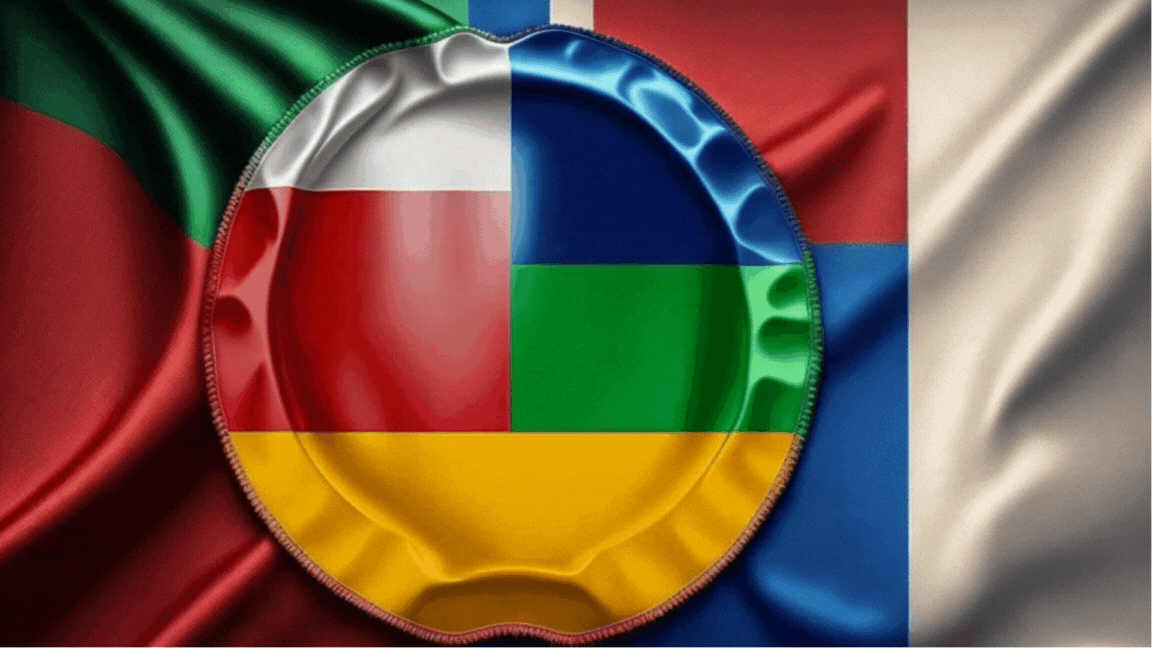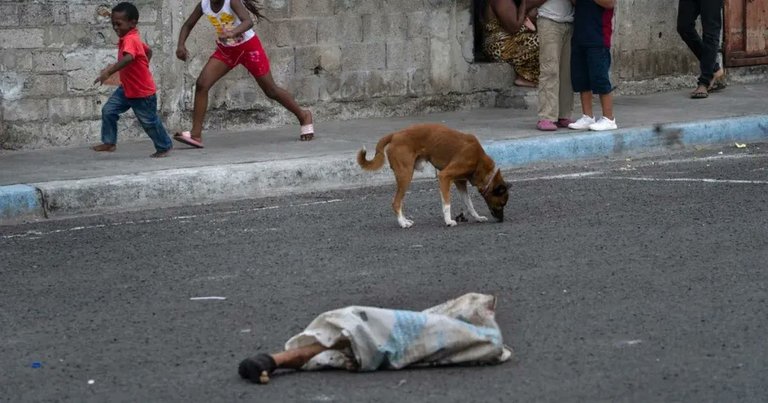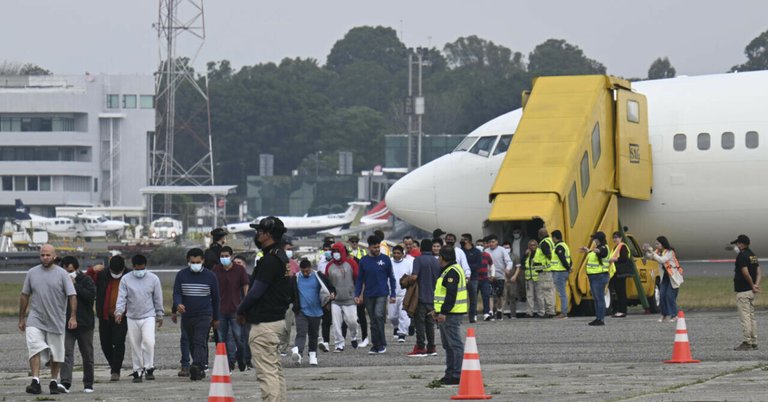The Latin American Report # 154

"We have made homicide part of the landscape"
This was said by a Colombian congressman in the face of the murder of a mayor last week, and I found it a powerful metaphor for the commentary that opens our report today. Because, unfortunately, we can also appeal to it when we talk about Mexico, where yesterday six people died when a girl was celebrating her 15th birthday (and let's remember that very recently about a dozen people, mostly young, lost their lives when they were also celebrating a party on the eve of Christmas). According to reports we have gathered, the target of the deadly attack was the leader of a criminal group, who was accused of attempted femicide, aggravated homicide, and kidnapping.
The Sonora state prosecutor's office reported that this man, who died at the scene, had an arrest warrant against him. This fact naturally brings out a critical and severe judgment on the Mexican justice system—remember the shameful and unsolved case of Ayotzinapa—where a man with this record was enjoying a party with so much impunity. Nearly thirty people were injured, worrying in that regard that because of the nature of the celebration, most of its attendees were around 15 years old. The security problem in Mexico ends the year in an even more serious state than it began. The souls of the disappeared and the dead buried in yet undiscovered graves cry out for change, for their death to be the "enough is enough" that the Aztec nation needs. Below I share a video available on X where you can hear the gunshots that massacred the joy of Cajeme yesterday, Friday.
#Nacional | Después de confirmar este viernes a las 1: 40 horas, que un comando armado irrumpió en una fiesta de #XVaños, en el municipio #Cajeme, Sonora, han comenzado a circular en redes sociales una serie de videos grabados justo cuando ocurrían las detonaciones. pic.twitter.com/0C57Igrkwu
— El Mañana de Reynosa (@elmananarey) December 29, 2023
2023: the year in which Ecuador was stained red
2023 still has a few hours left, and it is likely that in the meantime the country will sadly surpass the figure of 7,600 violent deaths, which represents an increase of nearly 72% over the previous year's bloody record. The homicide rate is already at an alarming 40 per 100,000 inhabitants, eight times higher than that left by former President Rafael Correa in 2017. The growth has been sadly meteoric, also in kidnappings, which exceeded the figure of 120 this year, reporting an increase of more than 200% over the previous one. In addition, about 5,930 extortions were recorded, which reflects in general a sort of criminal epidemic in the country, marked by the impact of drug trafficking and criminal gangs tied to that scourge, a hydra with a thousand heads that has plunged into insecurity even once peaceful countries like Costa Rica.
 The legs of a dismembered man protrude from a bag lying on a street in a neighborhood of the violent city of Guayaquil (source).
The legs of a dismembered man protrude from a bag lying on a street in a neighborhood of the violent city of Guayaquil (source).This year, in Ecuador, some 210 tons of drugs were seized. However, according to experts, the national state is mistaken in its strategy of confrontation. As we have also discussed in our reports, especially looking at the "victorious" case of El Salvador, it is necessary to do other things besides strengthening the direct fighting of criminal structures, which in the case of the South American nation represent a phenomenon that "is reproducing itself socially", giving "shelter" to children and adolescents divorced from study and work. By the way, I am concerned about how little Daniel Noboa's arrival at the Carondelet Palace has been felt in all senses.
An unwanted homecoming
Washington practically doubled the number of deportees in fiscal year 2023, approaching 142,600 in total. Mexico was one of the main destinations of the returns, always painful for the migrant who could not fulfill his/her dream, as more than 54,000 people came from the Aztec nation, the last stop of a journey that starts in South America and to which migrants from all over the region are joining. This data also tells us that there is an unsatisfied social demand in Mexico, which goes beyond the problem of insecurity that we discussed on our cover. It is important to highlight this because we often focus on the Central American or South American migratory drama. Anyway, we learned that 55,300 Guatemalans were also returned this year, about 700 more than the previous record set in 2019. Particularly yesterday three new flights were landing with just under 400 deportees, returned from the anti-immigrant state governed by Greg Abbott.
 The most unwanted landing. Guatemalans deported from the United States (source).
The most unwanted landing. Guatemalans deported from the United States (source).In the same vein, Mexico restarted its repatriation flights to Caracas, according to a report issued by the Aztec Foreign Ministry. The action would be in correspondence with the commitments assumed in the "Declaration of Palenque", the result of a meeting held two months ago there. This was stated by Mexican authorities: "It was agreed to restart the coordinated mechanism of repatriation flights for Venezuelan people, for which two pilot flights were carried out between yesterday and today, December 29 and 30". As a palliative for the migrants, Mexico and Venezuela would be working on the development of social programs in the South American nation to benefit not only the deported individuals but also other vulnerable people. The idea would be to "link them with productive projects and paid internships in work centers". The latter seems fine to me, but there is still a lot to be done in terms of solidarity and cooperation within the region, in addition to the responsibility we may want to place on the United States in the disapproved task of improving the living conditions of Latin Americans. In general, the lack of results in routing efforts to produce value and growth for all our countries, with emphasis on those most in need, complementing strategies and access to resources, is shameful.
The quick regional roundup
The Colombian Army seized more than 1 ton of cocaine hydrochloride found in a laboratory that was dismantled as part of an operation to combat drug trafficking. Authorities hypothesize that the destroyed infrastructure belonged to the Clan del Golfo, which tends to be presented as the strongest criminal gang in the country. Incidentally, it is the only large organization involved in Colombia's armed conflict that is not part of the "Total Peace" process promoted by President Gustavo Petro.
A dozen priests have been arrested in the last ten days in Nicaragua, in what is a "new" chapter in the icy relations between the clergy and the controversial government of Daniel Ortega, which assumes them as critical promoters of the opposition. We have commented here on several occasions on Nicaragua's not at all anecdotal results in economic matters, which then contrast sharply with the rude record of the Managua government in terms of human rights. Some activists have cried out for help to the head of the Holy See given the "relentless persecution" and "ferocious hunt" against the Nicaraguan Church.
And that's all for our report today, and also for the year. As this is the last Latin American Report of 2023, I would like to thank all of you who regularly support this content. I always try to do my best, respecting the platform, but especially you. I hope you all have an excellent 2024.


Yay! 🤗
Your content has been boosted with Ecency Points, by @limonta.
Use Ecency daily to boost your growth on platform!
Support Ecency
Vote for new Proposal
Delegate HP and earn more